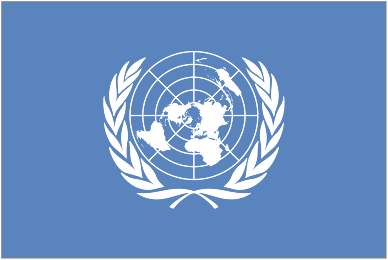
As heavy fighting continues throughout Syria, the United Nations refugee agency today reported that the number of those fleeing to neighboring countries rose to over 100,000 in August – the highest monthly total to date.
According to the Office of the UN High Commissioner for Refugees (UNHCR), 103,416 people sought asylum in countries neighboring Syria in that month, bringing the total number of Syrian refugees registered or awaiting registration as of 2 September to 235,368 – mainly in Lebanon, Turkey, Jordan and Iraq.
Those figures include Iraqi refugees who had previously fled to Syria and are now returning to their homeland by the thousands, a UNHCR spokesperson, Melissa Fleming, told a news briefing in Geneva. According to the Iraqi Government, 35,000 people returned to Iraq in July and August alone.
“Most tell us they are leaving because of general insecurity, although some have reported direct threats,” Ms. Fleming said, noting reports that three Iraqi refugees were killed last week in Jaramana, located outside of the capital, Damascus, increasing fear among the refugee population there.
More than 18,000 people, mostly civilians, have died since the uprising against President Bashar al-Assad began some 18 months ago. There have been reports of an escalation in violence in recent weeks in many towns and villages, as well as the country's two biggest cities, Damascus and Aleppo.
Ms. Fleming said UNHCR and the Syrian Arab Red Crescent continue to expand operations to support Syrians displaced both internally and abroad. Domestically, the UN agency has launched a program of financial assistance, with 730 vulnerable families receiving checks as part of a scheme to help some 35,000 families in the coming months.
In Iraq, authorities in the Kurdistan region had agreed to the establishment of a second refugee camp that will mainly accommodate Syrian Kurds, arrivals of whom had been increasing significantly in the past week, along with smaller numbers of other Syrians, Ms. Fleming said.
For returnees, the Iraqi Ministry of Displacement and Migration is expediting the registration process to enable them to receive government assistance for their reintegration. Some 2,000 families were registered in July and August as part of that effort. UNHCR is also assisting Iraqi returnees with household items and will soon start a small cash assistance program for the most vulnerable returnee families.
In Jordan, into which refugees continue to flow at a rate of about 1,000 a day, the Government, UNHCR and partners are preparing for an even larger influx, given reports of increasing numbers of displaced people in southern Syria.
Ms. Fleming said that the first batch of 56 trucks carrying 13,000 tents and relief items, such as blankets, cans and kitchen sets, for a total 150,000 people, arrived in Jordan from Dubai over the weekend to augment local supplies.
In Lebanon, there are now more than 59,000 Syrians registered or awaiting registration with the UN refugee agency, Ms. Fleming said, adding that this week the agency is opening a mobile registration center in the eastern Bekaa Valley.
Host families and schools are increasingly stretched in their capacity to host refugees and UNHCR is appealing to authorities in Lebanon to approve alternative shelter options, she said, while the agency is also working to meeting the educational needs of the refugee children.
Turkey, meanwhile, now hosts some 80,410 Syrian refugees, according to the Government. Ms. Fleming said that there was still a backlog at the border, with reportedly around 8,000 people waiting to cross and receiving assistance, while being admitted at the rate of hundreds per day.
Ms. Fleming added that the Turkish Government continues to transfer Syrian refugees to the new camp in Karkamis, with over 4,000 people already transferred in recent days. Another new camp opened yesterday in Kahramanmaras.
The spokesperson noted that the Turkish Government continues to assure UNHCR that it will keep its borders open to Syrian refugees.